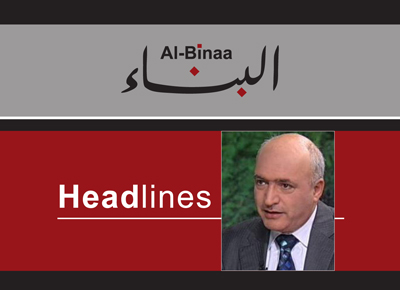Aftershocks in the Entity Following the Gaza Earthquake: Netanyahu Stalls as Ben-Gvir Resigns / Moscow and Tehran Sign a Comprehensive Strategic Partnership Treaty: Washington Alarmed
Salam Meets with Berri Today: Khalil Declares, “We Are Neither a Defeated Nor a Troubled Sect, But We Have Our Demands”

January 17, 2025
The political editor wrote
The occupying entity has entered a phase of political aftershocks following Gaza’s victory, even before the implementation of the ceasefire and prisoner exchange agreement. Political divisions, disputes, and threats to dissolve the governing coalition have surfaced. Prime Minister Benjamin Netanyahu has turned his efforts toward convincing his coalition partners, Bezalel Smotrich and Itamar Ben-Gvir, to remain in the government after both described the agreement, in their own ways, as a humiliating defeat. Netanyahu has hinted at delaying the agreement’s implementation by accusing Hamas of making new demands, a claim denied by both Hamas and the Egyptian and Qatari mediators. The U.S. issued warnings against any backtracking on the agreement. Analysts on Hebrew television channels predict escalating political confrontations and civil divisions over the agreement, reminiscent of the period before the Al-Aqsa Flood.
On the international and regional front, a significant event is unfolding in Moscow today with the signing of a comprehensive strategic partnership treaty between the Russian Federation and the Islamic Republic of Iran. Presidents Vladimir Putin and Masoud Pezeshkian will formalise the agreement, which has been months in the making. The treaty includes various fields of cooperation, such as trade, oil projects, pipelines, railways, commercial shipping fleets, joint industrial and free trade zones, defense industry expertise exchange, and counterterrorism efforts. The event has drawn considerable U.S. attention, reflected in statements and analyses expressing concerns over the potential formation of a military alliance comprising Russia, China, Iran, North Korea, and Belarus. While Iran has denied the alliance claims, it has not alleviated U.S. fears, which view the timing – just before Donald Trump’s assumption of presidential duties – as a Russian declaration of distrust in negotiating with Trump and a reaffirmation of its strategic partnership with Iran, even after the fall of their mutual ally’s regime in Syria, which had been a focal point of their cooperation.
In Lebanon, Speaker of Parliament Nabih Berri is set to meet today with Prime Minister-designate Nawaf Salam. This comes after the Amal Movement and Hezbollah boycotted the non-binding parliamentary consultations held by Salam with MPs. Berri’s political aide, MP Ali Hassan Khalil, clarified that dialogue with Salam is ongoing and that the duo remains open to constructive engagement. He emphasised that Amal and Hezbollah hold the largest parliamentary bloc, with 30 MPs, alongside extensive political and parliamentary alliances. Khalil emphasised that the issue is not Salam but with those who claim that the Shia sect is defeated stating “we are neither a defeated nor a troubled sect, but we do have our demands”.




